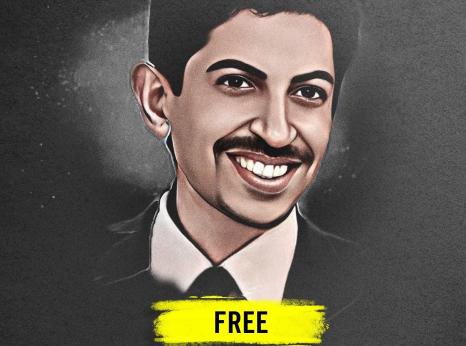Bahrain: Prisoner Of Conscience On Hunger Strike

Prominent human rights defender and prisoner of conscience Abdulhadi Al-Khawaja, aged 62, co-founded both the Gulf Centre for Human Rights (GCHR) and the Bahrain Center for Human Rights (BCHR). Until early 2011, he worked as MENA Protection Coordinator for the human rights group Frontline Defenders. He also previously took part in an Amnesty International fact-finding visit to Iraq in 2003 and is a member of the International Advisory Network of the Business and Human Rights Resource Centre. He is a peaceful advocate of human rights and the recipient of several human rights awards, including the Dignity - World without Torture Award which he received in October 2013. Most recently, in 2022, he obtained the prestigious Martin Ennals Award for Human Rights Defenders. Abdulhadi Al-Khawaja is serving a life sentence in Jaw prison for his role in leading peaceful protests during the 2011 popular uprising in Bahrain. He was convicted and sentenced following a grossly unfair military trial in 2011 and later at a retrial in 2012 by a civilian court on charges including “setting up terror groups to topple the royal regime and change the constitution”.
On 13 February 2023, Abdulhadi Al-Khawaja was examined by an ophthalmologist who was brought to Jaw prison without any equipment but who established that Abdulhadi Al-Khawaja’s glaucoma had worsened and prescribed new eye drops and glasses for him. On 2 March 2023, Abdulhadi Al-Khawaja was taken to the Bahrain Defence Force (BDF) hospital for an ophthalmology appointment. Contrary to an agreement he made with the prison authorities, on arrival at the hospital he was tightly handcuffed.
On 28 February 2023, Abdulhadi Al-Khawaja experienced a cardiac arrhythmia and was transferred to the BDF hospital where the doctor stated that he must be urgently referred to a cardiologist. While Abdulhadi Al-Khawaja was still in the treatment room, a plain clothed man introducing himself as the head of security of the hospital ordered that he be handcuffed. Abdulhadi Al-Khawaja refused to be handcuffed and left the room. He was returned to prison, and he did not see and was not assessed by a cardiologist until 1 June.
On 9 May 2023, Abdulhadi Al-Khawaja began a daily protest in front of the CCTV cameras in the prison yard demanding that he and others in prison be granted their right to adequate medical care. He would hold up written signs that read: “Preventing medical treatment is slow, systematic murder” and “You commit torture and prevent medical treatment”. On 14 May 2023, he told his family that he was temporarily suspending his protest as the prison administration had promised to improve conditions and allow him access to adequate treatment, but he is yet to see the specialists who were meant to examine him in hospital.
Abdulhadi Al-Khawaja’s hospital medical appointments did not take place as scheduled, even when he agreed to being handcuffed and transported on board an armoured bus and against medical advice from prison doctors that the prison authorities should relax the constrains because of his medical conditions, including spinal issues. According to prisoners’ testimonies, during travel in the armoured bus, prisoners are at times kept waiting in the vehicle for hours. More recently, some other prisoners were transported in regular cars or busses and without being handcuffed. International human rights mechanisms have said that the use of restraints on prisoners who do not pose a risk can constitute torture or other ill-treatment. Rule 47 of the United Nations Standard Minimum Rules for the Treatment of Prisoners states that restraints should only be used to prevent escape or to prevent prisoners from injuring themselves or others.
On 4 May 2023, the United Nations published a joint communication sent earlier in the year by the UN Special Rapporteur on Human Rights Defenders and five other UN experts to the government of Bahrain, expressing their utmost concern over Abdulhadi Al-Khawaja’s situation, including his arbitrary detention and renewed allegations of torture and other ill-treatment. On 17 April 2023, the Bahrain government responded to the letter not recognizing Abdulhadi al-Khawaja as a human rights defender, rather labelling him as a “terrorist”. It also said that he was enjoying his rights, including healthcare and legal representation.